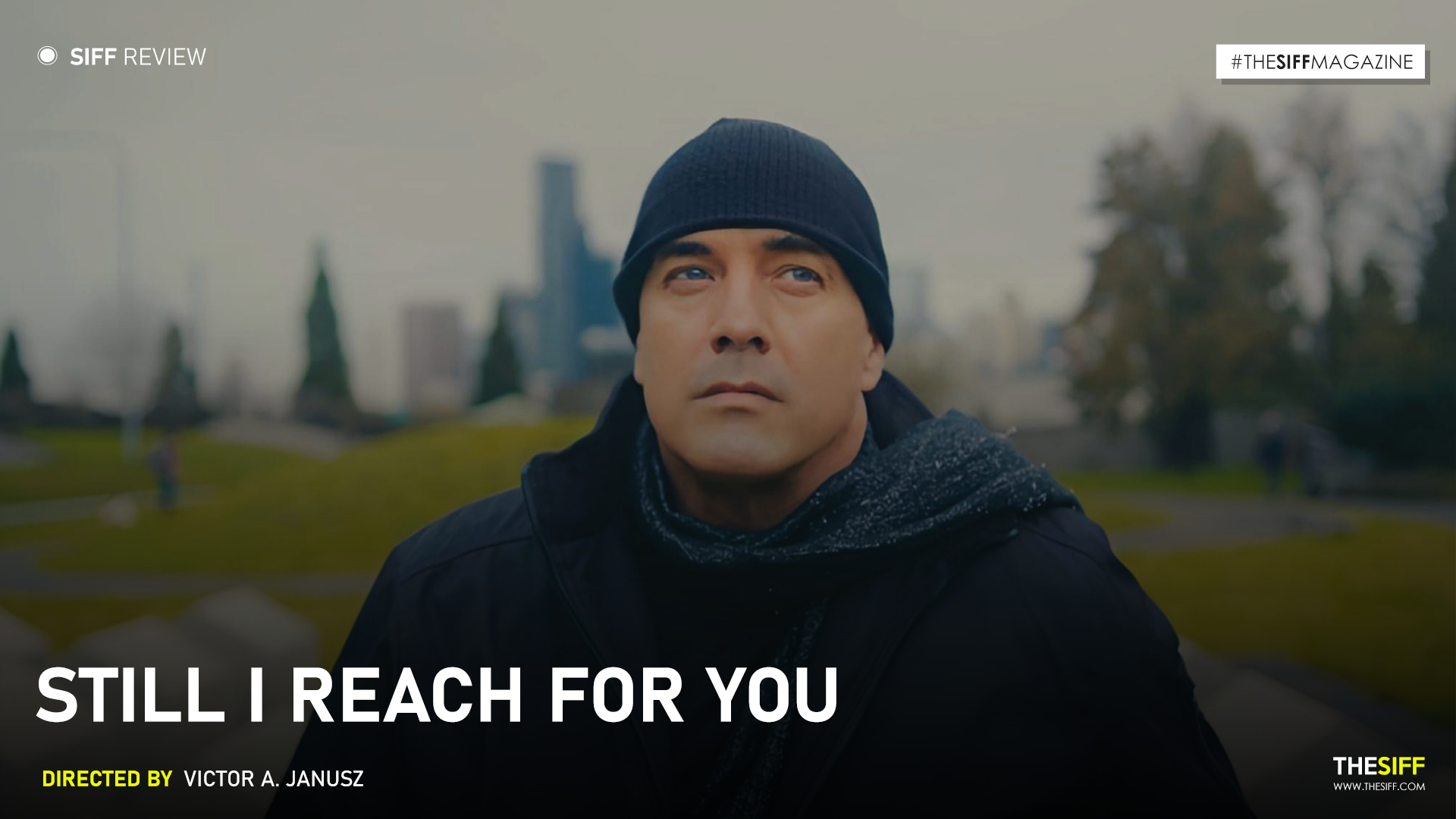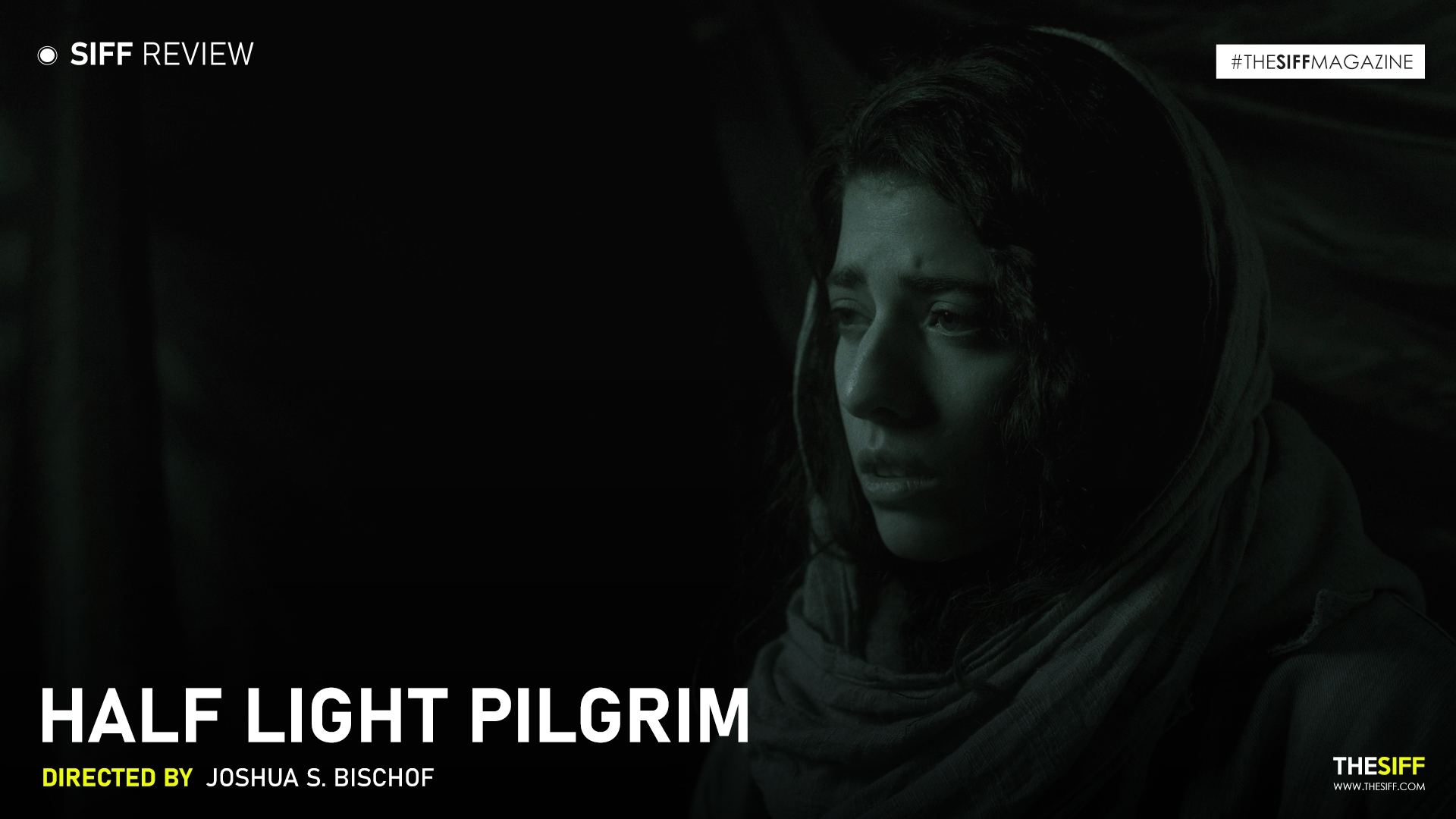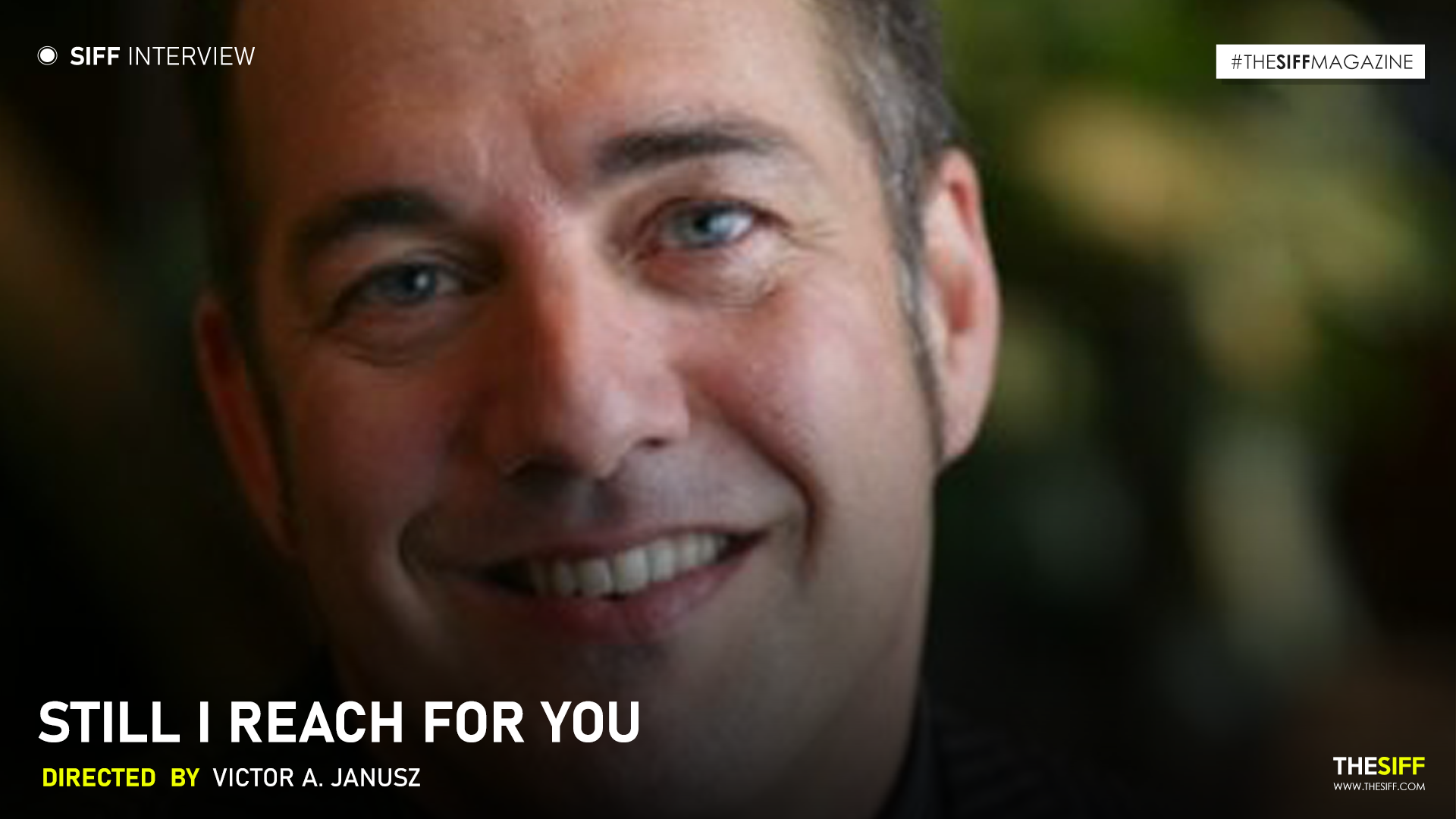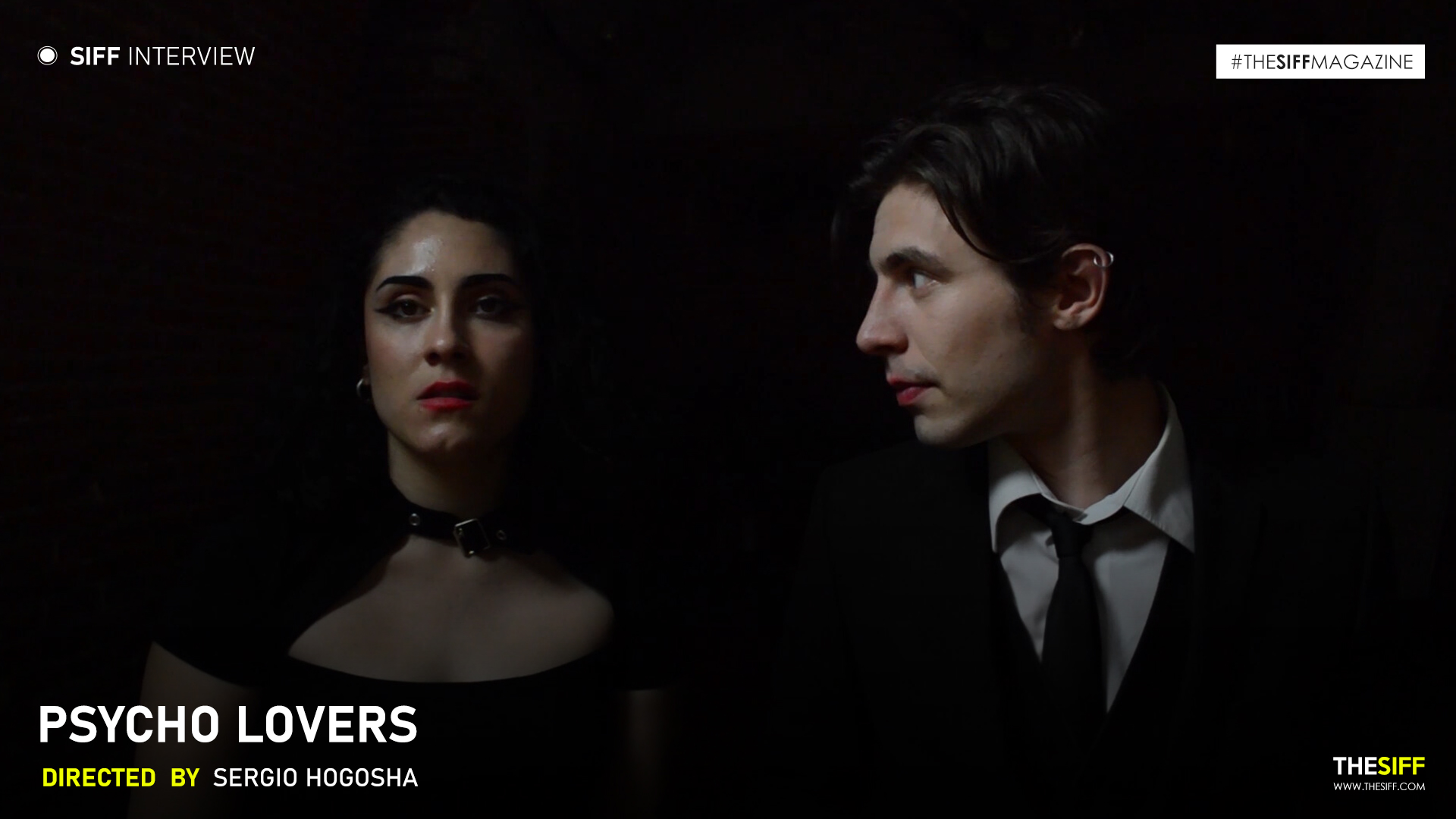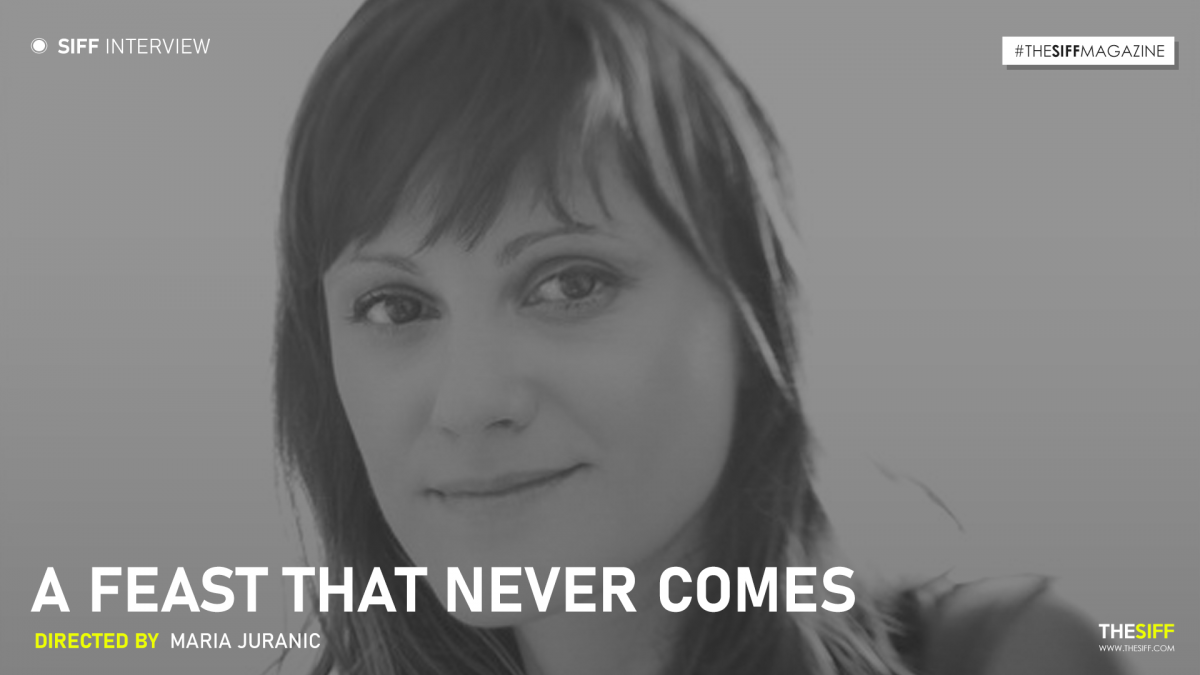
Movie: A Feast That Never Comes
Director: Maria Juranic
Writer/Composer/Producer: Ex-Fiancée (Sven Britt)
Choreographer: Chris Masters
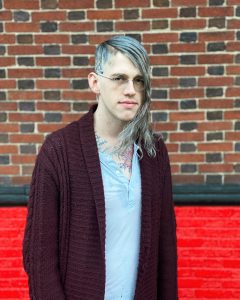
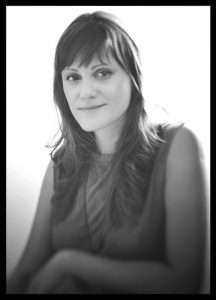
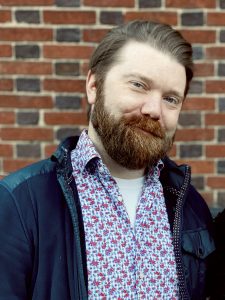
Writer/Composer/Producer: Director: Choreographer:
Ex-Fiancée (Sven Britt) Maria Juranic Chris Masters
Sven Britt has played, produced, and toured professionally with Stranger Cat (Joyful Noise Recordings [Son Lux, Kishi Bashi, of Montreal]), a duo with Cat Martino (The Shins, Sufjan Stevens, Sharon van Etten), playing at Bonnaroo, as well as opening for Son Lux, Patrick Watson, Sebadoh, Natalie Prass, Night Beds, Indians, Emmy the Great, Yoni Wolf, Serengeti, Reptar, Surfer Blood, and Porches.
Most recently, he has focused on music for immersive theater and dance, which has been presented at La MaMa Moves! (NYC), Danspace Project (NYC), Fengchao Theatre (Beijing), Triskelion Arts (NYC), University of Hawaii at Manoa, and The Iron Factory (Philadelphia). His upcoming album, A Feast That Never Comes—directed by his longtime collaborator (and husband) Chris Masters—will be released following this short film’s festival circuit, which film has accrued over 550 awards and selections thus far in the most competitive year in film festival history.
Chris Masters has been making dance work for over twenty years, and is currently director of ChrisMastersDance (CMD). His work has been presented at Judson Memorial Church, Salvatore Capezio Theatre, La MaMa Experimental Theatre Club, Danspace Project, 100 Grand, Triskelion Arts, Irondale Center, and Dixon Place in NYC, as well as Detroit Opera House, Music Hall Performance Space (Detroit), Boll Theatre (Detroit), Iron Factory (Philadelphia), Fengchao Theatre (Beijing), and CMD has held creative residencies at Public Space One (Iowa City) and 555 Gallery (Detroit).
Masters has performed the work of Martha Clarke, Colleen Thomas, Stephanie Liapis, Keith Thompson, Doug Elkins, and Jan Erkert, among others. Additionally, Chris performed with Third Rail Projects’ Then She Fell, recipient of a 2013 New York Dance and Performance (Bessie) Award.
Hello both Sven and Chris, welcome! Congratulations on winning Best Music Video and being nominated for Best Experimental Film and Best Short Film—it’s great to have you here! Tell us something about your journey into film as a composer and choreographer?
Sven Britt (Writer/Composer/Producer): I’ve always had a deep love for film, and have scored a few short films in the past, but this project came out of the desire to showcase my upcoming album—also titled A Feast That Never Comes—and the way in which our task-based approach to the creative process aligns between music and dance, and to memorialize the characters present in the album with less funding than it would take to construct a full-length, tourable live show.
Chris Masters (Choreographer): I’ve been directing/choreographing dance for over two decades, and I’ve always been interested in how film can be used to democratize access to dance—hopefully overcoming some of the correct accusations of elitism in the field—while using the camera to capture dance in a way that simply can’t be done in live performance settings.
What is your idea of a film? How would you define a film?
Sven : For me, I relate film to a piece of recorded music. What makes this form interesting to me is the way in which something can be captured that is absolutely static—every time you watch a film, you are watching the exact same sequence of images—but can be perceived completely differently, not only due to disparate witnesses’ individual histories but also due to the lived experience of an individual from one viewing to another.
Chris : In dance and live music, the ephemerality is built-in as an inescapable element of form. So individual perspectives are physically different, as focus is pulled across a wider setting, and performers never perfectly replicate a past performance. What interests me about screendance is that the performance and perspective is only ever one singular thing, yet—at least when built using tactics that investigate the core concept of the work in a way that is interrogative rather than declarative—everyone can still manage to differently experience and relate to the piece.
That push and pull is deeply interesting to me, as someone who endeavors to craft work that constructs myriad entry points and avenues of empathy to intentionally create projects that not only allow but rather explicitly encourage the audience to find their own way into the work, even as everyone is technically watching the exact same thing every time that they see it.
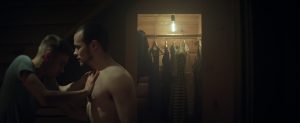
How did your artistic journey start? What inspired you to pursue storytelling through music and dance?
Chris : My artistic journey started around 8 or 9. After my interest in martial arts faded, my younger sister got to pick our one after school activity, and she chose dance. After realizing at an early age that if you were halfway decent at something, you’d get attention, I quickly dug my heels in as an attention-starved child from a broken home. It was not until my experience in undergrad with visionaries like Jan Erkert that I really became interested in making my own work. When I saw what dance could actually do, the way conversations could be started and how avenues of empathy could be established, I decided then and there that I wanted to dedicate my life to creating movement-based performance.
Sven : It was a survival tactic for me. I got my start in theater, and was terribly close to pursuing a career on the stage. But right before I fully dove in, I realized that I needed to stop acting—I had been “acting” by being in the closet for too long, and it wasn’t healthy for me to continue to play roles when I hadn’t properly figured out who I was as an individual.
Through writing my own music, I was able to find my own identity and explore my experience through my work, to help get a clearer image of myself. Self-understanding is right up there with craft and intentionality in terms of what I hold dear in creative pursuits, and as much as it was taxing to dig deep and unearth trauma and complex perspectives about myself through my work, I can’t imagine confidently creating anything without the ability to know myself.
As Sven just said, creativity clearly can have a dark side! There must be times during this project when you felt demotivated or felt a creative block. Tell us how you face such situations?
Sven : The album took an impossibly long time to make, due to the complex task-based approach to the creative process. The frustration that comes with making work so slowly and being unable to share it—not like I have anything against those creators that can have a prolific output or publicly share works in progress, just that it’s anathema to the way that I work—certainly threw me into a dark place.
And to top that off, during the course of composing and producing the album by myself (Chris’s direction had little to do with the day-to-day of making the tracks), we were in housing court for years against a slumlord that nearly bankrupted us for demanding decent living conditions, while he owned 80+ buildings in Brooklyn and was helping an ex-NYPD Vice detective run a brothel out of the apartment below ours.
So, yeah. It got dark. As for dealing with it, I’ll let Chris chime in.
Chris : Well, we got a dog to subdue some suicidal ideation. So that was a lot of it. But generally speaking, we deal with the darkness by delving in. The subject matter is intense, and pretending otherwise does none of our collaborators any favors.
And more specifically to A Feast That Never Comes, the real frustration and moment of demoralization for me was in how quickly we needed to create site-specific choreography. While it all worked out in the end, the pressure of creating incredibly specific and sometimes-dangerous choreography—using the same tactics that were used for each of the sections of the songs that were used to make the music—with a timeline limited by daytime hours and the broader tight shooting schedule… It was tough. But we managed!
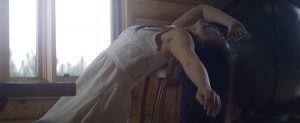
A Feast That Never Comes has a well-knit plot! What made you pick this storyline?
Sven : The album has four named characters, so that was the starting point. But that said, the story is intentionally crafted to be opaque, as the points of investigation are not narrative but rather the themes of technology’s effects on our understanding of self and others, communication, mental health, digital outrage, public vs. private presentation, and cycles of abuse.
But the narrative is unclear. We asked all of the performers and crew at the end of the shoot what their understanding of the story was—no two people shared an answer. The visual motifs that come back throughout the piece were constructed from extrapolations of existing lyrics, and I personally had some idea of a story based on the characters… but I don’t have all the answers. Impact over intent.
Chris : This is the beauty of work that’s interrogative rather than declarative. Everyone can walk away with a different perspective, and all of them are equally valued and correct. Essentially, the work remains fundamentally unfinished without the perspective of the viewer.
In general, which features of a story stand out to you?
Chris : While acknowledging the fear of sounding like a broken record, I cherish stories that tackle myriad and disparate topics in a way that allow myriad and disparate audiences to see themselves in the stories.
Sven : I feel very much the same, in both the way that that creative approach encourages inclusivity of the audience, and also in how it embraces various understandings of the “story.” If a song I write tackles my own trauma, that’s nice, but I only consider it a success if it transcends that singular point of view, and allows the audience to authentically and validly buy into the work in a different way.
My experience is not universal, and from a dictatorial or declarative standpoint, it offers very little to a broad audience. But the closer I can get to a story being told that reverberates through different identities and communities, the more successful I find the work.
A creator has a lot to offer to their audience. What are your goals when creating? What kind of narratives do you want to tell through your work?
Chris : A different perspective, but one that functions for all audiences. The narrative is as dark as you want it to be.
Sven : Much like a seven-layer dip, or nesting dolls, the work I want to make invites you to choose how deep you want to dive. For Feast, the tapestry of imagery and storytelling from Chris’s unique tactics provides ever more levels to unpack, but the work is never framed as a puzzle to be solved. And that’s the type of narrative I’m interested in creating and sharing.
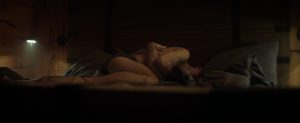
In film, you have to face external obstacles, I am sure. Would you like to propose certain ideas that would be beneficial for independent filmmakers?
Sven : I think my only real answer is a Universal Basic Income. Arts funding, especially in the US, is such a shit show—wrought with nepotism and invite-only funding opportunities—that maybe the only tenable solution I could posit is a UBI.
If you are asked to rank all your projects in terms of execution and direction, where would you place A Feast That Never Comes?
Chris : High. While different from much of my previous work that prioritizes the ephemerality of live performance, I’m terribly proud of the work itself, and the effort put forth by all of our collaborators to create a film that profoundly and thoughtfully considers movement, narrative, and perspective.
Sven : I have the benefit of having been directed by Chris for all of the projects I’m most proud of. So I can eschew humility and simply say that this album—and attached film—is easily number one. While I love my other projects with Chris, and am especially pleased with the 2.5-hour immersive dance-theater show we created in 9 days in Beijing, for which I made 24 hours of music in 36 working hours… This film and album has benefited from brilliant direction and collaborators in such a way that I don’t have to feel bad claiming it as good work.
Chris and Sven, have you planned your next project? When are we going to see it?
Chris : Our new evening-length concert dance work, Mausoleum, is going to be premiering in NYC in May 2023, before touring over the summer. Nonstop and unrelenting, we’ll use simulcast projections to redirect the audience’s gaze, interrogating our overconsumption of media, addiction to drama, and complacency toward tragedy. This comfortable inertia can be overcome only through external intervention and the recognition of the inextricable link between love and loss.
Every love story is a ghost story; we are all haunted by our individual histories, by the ghosts of those who have impressed themselves on us before. These histories and impressions impact our subjective experiences and future relationships—which then impress themselves upon future histories, and so on ad infinitum. The circle and cycle remains unbroken. Through cerebral yet hyper-physical movement, we filter this circle through layers of dramatic and choreographic interpretation, forging duets, trios, and quartets from disparate solos—only to tear them back apart. But then we may find them melded once again…
Sven : In addition to Mausoleum, I’m working on my next album, which is closely tied to those themes. But mostly, I’m excited to be composing and performing in a work that may be able to reshape the ethics and labor equity of dance in New York.
It was nice talking to both of you! All the best for your future ventures !
Sven : You, too! And if you stumble across anybody wanting to make a tax-deductible donation to establish greater labor equity in dance, feel free to send them our way !


